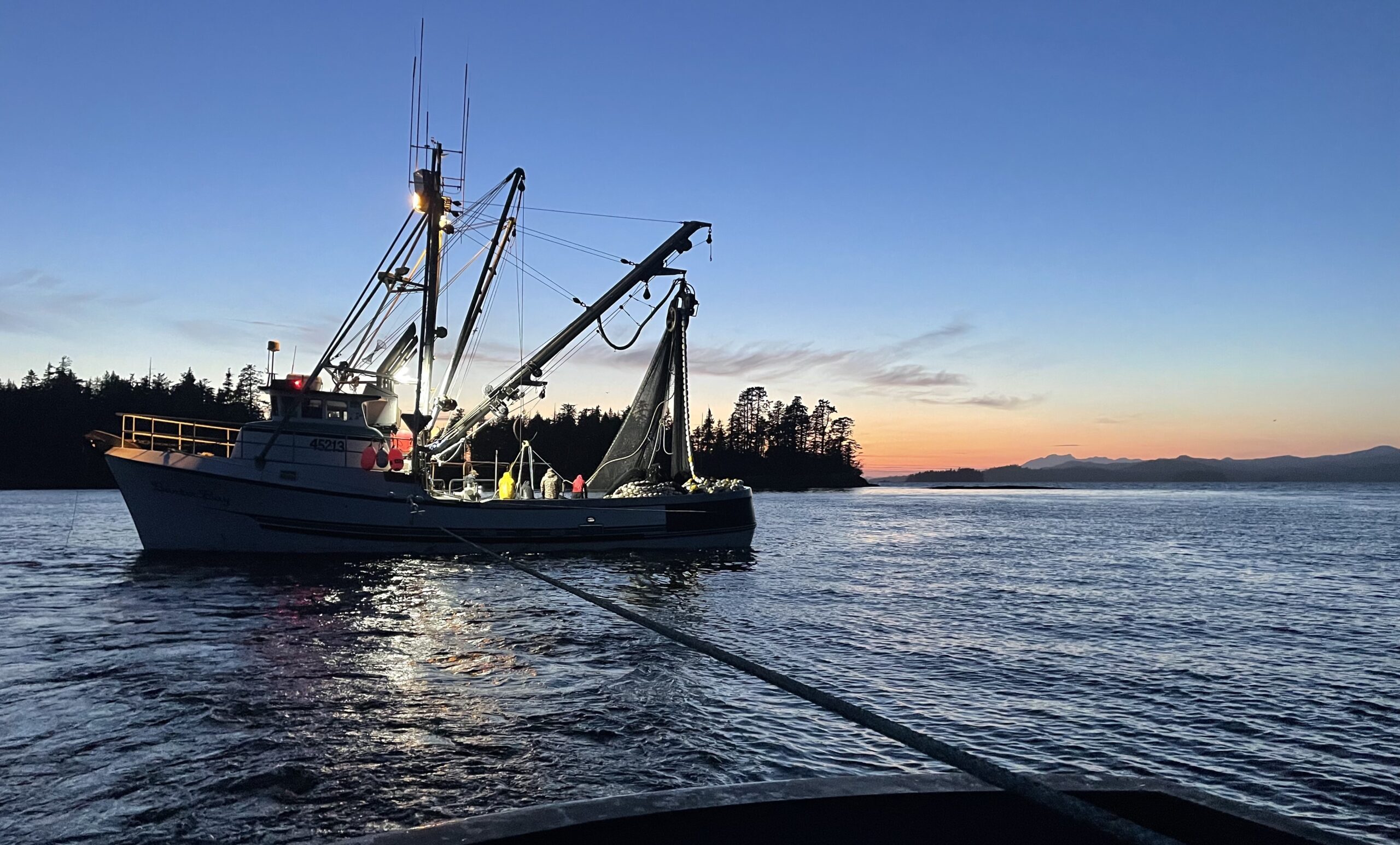The 2006 documentary film SEASWAP: Southeast Alaska Sperm Whale Avoidance Project is being pulled from the archives for an encore primetime airing on KTOO 360TV! Watch via broadcast, cable, satellite or online (ktoo.org/watch) on Monday, May 17, 2021 at 8pm. About the film: Alaska commercial fisherman Kendall Folkert works hard for his catch. Long hours on the boat can lead to disappointment and financial trouble when crafty sperm whales steal black cod off his longline gear. A team of researchers joins Kendall in the North Pacific to outwit the clever animals. Whale researchers Aaron Thode (Scripps Institution of Oceanography) and Jan Straley (University of Alaska Southeast) join forces in a unique collaboration with fishermen and fisheries managers to understand the signals prompting Read more…
Category: Uncategorized
Alaska Sea Grant Shellfish and Seaweed Festival
Alaska Sea Grant is holding a virtual Shellfish and Seaweed Festival from May 17-20 beginning at 6pm each evening. Register here to learn about shellfish and seaweed farming, take a virtual tour of Alaska oyster and seaweed farms, discover ways to prepare mariculture foods, and more.
USDA Seafood Trade Relief Program
The USDA recently introduced the Seafood Trade Relief Program (STRP) including $530 million for U.S. fishermen impacted by ‘retaliatory tariffs.’ Fishermen can apply for relief through the program until December 14, 2020. The STRP seafood payment rate will be on a per pound basis and will reflect the estimated severity of the impact of trade disruptions to U.S. seafood caught and sold commercially. Seafood commodities covered through STRP and their payment rates: Atka Mackerel $0.10 lb Crab (Dungeness) $0.47 lb Crab (King) $0.47 lb Crab (snow) $0.47 lb Crab (Southern Tanner) $0.47 lb Flounder $0.15 lb Geoduck $0.76 lb Goosefish $0.10 lb Herring $0.04 lb Lobster $0.50 lb Pacific Cod $0.14 lb Pacific Ocean Perch $0.10 lb Pollock $0.01 lb Sablefish $0.10 lb Salmon $0.16 Read more…
Sea Grant workshop on Seafood Direct Marketing
Alaska Sea Grant will also be holding a 5-day online workshop on starting and operating a seafood direct marketing business beginning at 5:30pm each evening of April 20, 22, 24, 26, and 29. The workshop will cover regulations, marketing, business planning, and quality. You can register here.
Southeast Sea Otter Stakeholder
The Southeast Sea Otter Stakeholder Meeting is being held in Juneau tomorrow, November 6th, from 8:30am-5:00pm at the Lecture Hall at the Alaska State Library, Archives, and Museum. You can attend in person, or stream the meeting live. In response to concerns expressed by numerous groups about the growth and health of the Southeast sea otter population, the U.S. Fish & Wildlife Service is leading an effort to organize and hold a Southeast Sea Otter Stakeholders Meeting. The intent is to bring together organizations and individuals from across southeast Alaska and other parts of the state to review the latest science and research about sea otters and—with the guidance of a professional facilitator—to discuss potential approaches to mitigating and/or resolving resource conflicts. Read more…
2020 Young Fishermen’s Summit
The Young Fishermen’s Summit will be held January 21-23 in Juneau Alaska. The Alaska Young Fishermen’s Summit builds leadership and networking capacity in the Alaska commercial fishing industry during three days of intensive training. The fast-paced program features industry leaders in fishing business management, the fisheries management process, and the role of Alaska seafood in the global marketplace. The summit is also timed to take advantage of the start of the Alaska Legislature regular session in Juneau. Early registration fee through Friday, January 7, 2020 is $150 and late registration fee is $175 afterwards. Here is more information. Read more…
Presentation on Humpbacks Foraging near Hidden Falls
Today, at 1pm Madison Koma, a Masters student at the University of Alaska Fairbanks, will be presenting on her findings of foraging humpback whales near Hidden Falls hatchery. You can watch her presentation from this link: https://alaska.zoom.us/j/822403929 Recent increases in the humpback whale (Megaptera novaeangliae) population have generated considerable interest in understanding the foraging habits of these large marine predators in the Gulf of Alaska. Globally, humpback whales are classified as generalist predators, but are known to exhibit localized differences in diet. Intensified predation pressure is of particular concern to resource managers, who have observed whales feeding at juvenile hatchery salmon release sites in Southeast Alaska. We assessed the diets and Read more…
